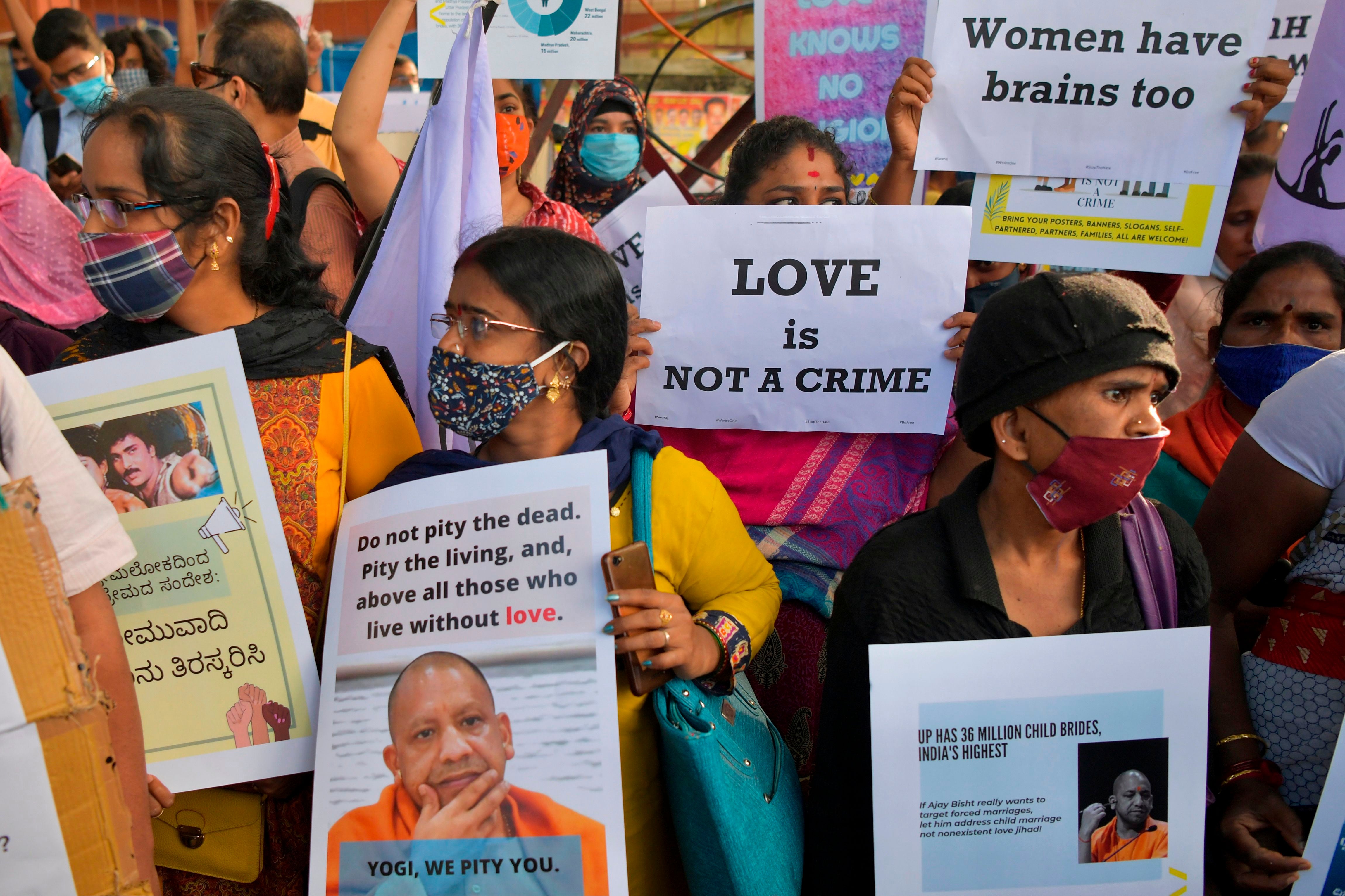India’s Supreme Court accepts pleas by activists challenging new law that targets interfaith couples
The anti-conversion law has been criticised by rights group as violative of individual freedom

Your support helps us to tell the story
From reproductive rights to climate change to Big Tech, The Independent is on the ground when the story is developing. Whether it's investigating the financials of Elon Musk's pro-Trump PAC or producing our latest documentary, 'The A Word', which shines a light on the American women fighting for reproductive rights, we know how important it is to parse out the facts from the messaging.
At such a critical moment in US history, we need reporters on the ground. Your donation allows us to keep sending journalists to speak to both sides of the story.
The Independent is trusted by Americans across the entire political spectrum. And unlike many other quality news outlets, we choose not to lock Americans out of our reporting and analysis with paywalls. We believe quality journalism should be available to everyone, paid for by those who can afford it.
Your support makes all the difference.India’s top court on Wednesday refused to stay but agreed to re-examine the constitutional validity of a controversial anti-conversion law passed in two northern states that rights groups say have led to dozens of arrests of Muslim men and state overreach in interfaith marriages.
The Supreme Court on Wednesday issued notices to Uttar Pradesh (UP) and Uttarakhand, two states that recently passed laws prohibiting conversion for the purpose of marriage. The states have four weeks to respond before the next hearing.
The three-judge bench comprising Chief Justice of India, SA Bobde, Justices V Ramasubramanian, and AS Bopanna was hearing petitions filed by lawyer Vishal Thakre and a non-governmental organisation named Citizens for Justice and Peace. Similar petitions against the constitutionality of the law are pending in the high courts of the two states as well.
The petitioners have argued that the laws were being misused to harass individuals seeking interfaith marriages, reports by the Indian media stated. According to Hindustan Times, the petition said the ordinances “are against the public policy and society at large and violates the basic structure of the Constitution.”
The petition stated that the law created division in society and questioned the grant of excessive power to the police.
The court, however, did not put an outright stay on the highly contentious law that has been labelled Islamophobic and violative of the fundamental rights of Indian citizens by observers and rights groups.
Speaking to The Independent, Supreme Court lawyer Anas Tanwir said: “Given the nature of the injury being caused by the ordinance and blatant illegality, SC could have granted the stay on the operation of these laws as there was no tangible need for the ordinance to begin with, and the operation of this ordinance has already caused irreparable injury to many people.”
Under the new law, an interfaith couple has to apply for “approval” by authorities stating that no religious conversion will take place during or after their wedding. However, several cases have been reported in which the police have slapped charges of forced conversions on individuals marrying with mutual consent.
The UP police apprehended 35 people within a month of the new law coming into effect, according to the Press Trust of India news wire. A young couple was detained and separated in UP’s Moradabad, after they reached the magistrate’s office to get their interfaith marriage registered. The woman later allegedly had a miscarriage under detention. A wedding in UP’s capital Lucknow was halted after police arrived at the venue and demanded that the couple first apply for approval from district authorities.
Activist Sanjay Sachdev, the convener of “Love Commando”, an organisation helping young couples in conflict with law, said: “Will the Supreme Court wake up when 400-500 people are dead?”
Pointing out that the new law is aimed at discouraging inter-religious marriages, he said: “The Supreme Court should ensure that marriages among Hindus and Muslims can take place in this country.”
The controversial ordinance was brought by the prime minister Narendra Modi-led ruling Bharatiya Janata Party (BJP) which forms the government in both states. Both interfaith marriages and the law are colloquially referred to as “Love-Jihad”, a Hindu rightwing theory claiming that Muslim men lure Hindu women into marriage in order to force their conversion to Islam.
However, police so far have not been able to prove a larger pattern behind conversions for marriage.





Join our commenting forum
Join thought-provoking conversations, follow other Independent readers and see their replies
Comments